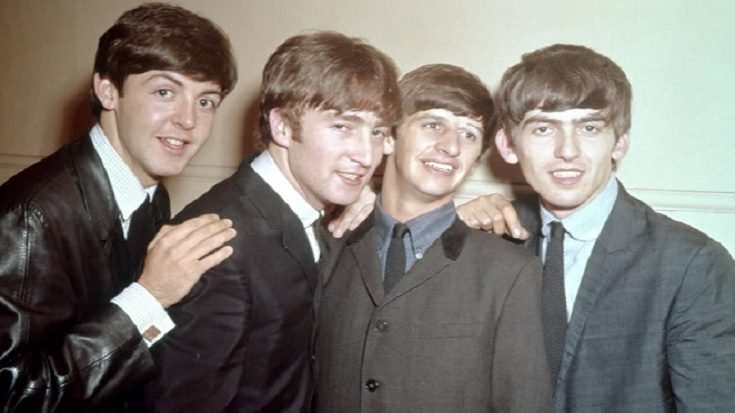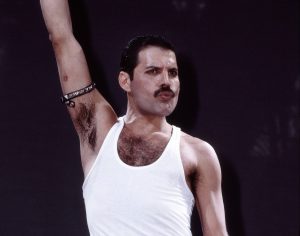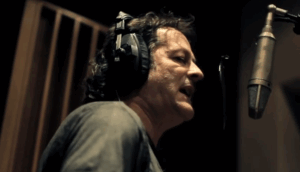Revisiting 1965: Rock Classics That Continue to Define the Genre

via The Howard Stern Show / YouTube
Rock music has had no shortage of milestone years, but 1965 stands out as a turning point. By this time, the genre had already shaken off its infancy and was beginning to stretch into new sounds, themes, and possibilities. Artists weren’t just performing songs—they were reshaping what rock could be, pushing beyond dancehall energy and into music that demanded lasting attention.
What makes 1965 so memorable is the way it caught bands and songwriters right on the edge of transformation. The songs of that year carried the grit of early rock while hinting at the experimentation that would soon define the late sixties. It was a moment of urgency, where every riff and lyric felt like part of a bigger cultural shift.
The tracks that emerged didn’t just fill the charts; they carved out a permanent place in the story of modern music. Decades later, these songs still resonate, not just as nostalgic snapshots of a particular era, but as timeless statements that continue to define what rock means.
“Ticket to Ride” by The Beatles
When The Beatles released “Ticket to Ride” in 1965, they showed just how powerful simplicity could be. The track doesn’t rely on flashy arrangements or complex production, but its melody hooks listeners instantly. Its pop sensibilities are straightforward yet undeniably effective, and the chorus has remained one of the most singable refrains in the band’s early catalog. At this stage, the group was still perfecting their balance between accessibility and artistry, and this song stands as a fine example of their early mastery.
Beyond its surface charm, “Ticket to Ride” also carries a layer of intrigue thanks to the ambiguity of its lyrics. While many fans interpret it as a story about a girl leaving or perhaps following the band on tour, others point to more provocative meanings. Don Short, who traveled with The Beatles, once claimed John Lennon joked that the phrase referred to medical certificates given to women working in Hamburg’s red-light district. Lennon’s dry wit made it difficult to know when he was being serious, but the possibility of a double meaning only deepens the song’s legacy.
That mix of catchy pop craft and playful mystery helped “Ticket to Ride” cement its place in rock history. It marked The Beatles’ continued rise and hinted at the more daring steps they would take as the decade unfolded. Even today, it remains a fresh reminder of how the band could take a seemingly simple song and make it unforgettable.
“My Generation” by The Who
Few songs from 1965 carry the raw defiance that The Who packed into “My Generation.” With its stuttering vocals and bold proclamation of youthful independence, the song became an anthem for an entire era. The Who didn’t just capture the frustration of being young in the ’60s; they created a track that has since been embraced by countless generations as their own rallying cry.
The song’s endurance comes from its flexibility. While originally tied to Britain’s Mod culture, its lyrics proved universal, giving voice to anyone who felt dismissed or misunderstood by the world around them. This universality is evident in the sheer number of covers spanning genres and decades. From Iron Maiden’s heavy metal take to Hilary Duff’s pop version, “My Generation” has been reinterpreted in wildly different contexts, each finding something fresh in its rebellious spirit.
For The Who, “My Generation” was more than just a hit—it was a defining statement. Its unpolished energy, combined with its cultural bite, made it one of the most important rock songs of the decade. More than half a century later, its shout of defiance still resonates, reminding listeners that rock music has always been about pushing back and standing tall.
“(I Can’t Get No) Satisfaction” by The Rolling Stones
While The Beatles captured the world’s imagination with harmony and charm, The Rolling Stones brought something sharper to the table. “(I Can’t Get No) Satisfaction” is the track that solidified their identity, delivering grit, swagger, and attitude in a way few songs of the time could rival. Its unforgettable guitar riff cut through the airwaves in 1965 and has never really left since, becoming a hallmark of rock itself.
Interestingly, not all musicians embrace the song that catapulted them to fame, often growing weary of its repetition in live sets. Mick Jagger, however, has long acknowledged “Satisfaction” as a cornerstone of the Stones’ career. He once noted that the track transformed them from just another band into a global force, calling it a “signature tune” that perfectly captured the era’s restless energy. For Jagger, its staying power lies in its title, riff, and sound—distinctive elements that made it unlike anything else at the time.
What sets “Satisfaction” apart is how it bottled the spirit of the mid-’60s. It spoke to feelings of frustration and longing while pulsing with a sound that was brash, fresh, and wholly original. Decades later, the song is still as iconic as the day it was released, standing as one of the ultimate examples of how a single track can shift the direction of a band—and of rock music itself.














